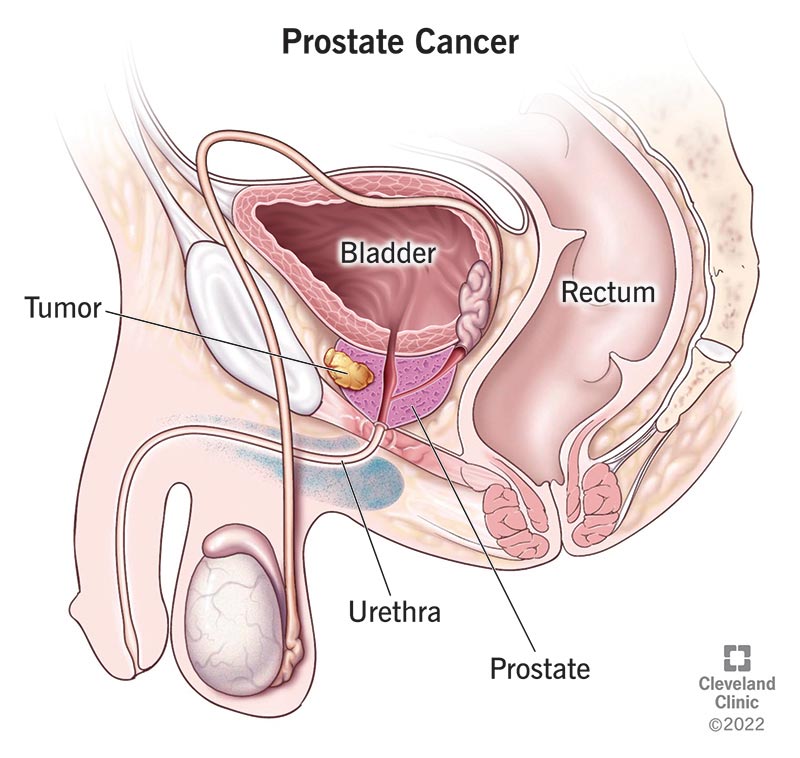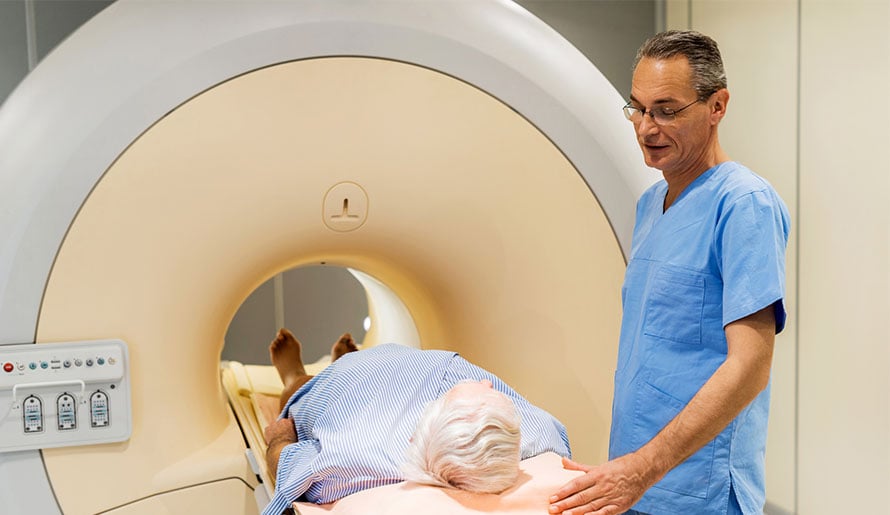Our Best Prostate Cancer Doctor Ideas
Wiki Article
Prostate Cancer Therapy: Surgical and Non-Surgical Approaches Explained
When encountered with a prostate cancer medical diagnosis, the variety of treatment options can appear overwhelming. From medical interventions to non-surgical techniques, each method carries its own collection of considerations and benefits. The decision-making procedure involves considering aspects such as effectiveness, possible negative effects, and lasting results. Understanding the subtleties of surgical methods, like robotic-assisted surgery, and non-surgical therapies such as radiation therapy and hormonal agent therapy, is vital for clients and their family members. This detailed overview aims to clarify the intricacies of prostate cancer therapy, offering understandings right into the complexities of each strategy to empower people in making educated choices regarding their wellness.Surgical Therapy Alternatives
When thinking about medical therapy options for prostate cancer cells, individuals and medical care suppliers often evaluate the benefits and dangers associated with different procedures. One usual medical technique is radical prostatectomy, which includes the removal of the entire prostate gland. This procedure is commonly suggested for people with local prostate cancer cells and supplies the potential for a remedy. Radical prostatectomy can lead to side effects such as urinary system incontinence and erectile dysfunction.
One more medical choice is robotic-assisted laparoscopic prostatectomy, a minimally invasive treatment that uses a robot system to assist the doctor in eliminating the prostate. This strategy can lead to less blood loss, shorter health center remains, and much faster healing times contrasted to conventional open surgical procedure. However, it also lugs the risk of difficulties such as infection and injury to surrounding body organs.
Ultimately, the option of surgical treatment for prostate cancer depends upon different factors consisting of the stage of the cancer, the individual's overall health and wellness, and their preferences pertaining to possible side results and recovery times. Consulting with a multidisciplinary team including urologists, oncologists, and radiation oncologists can help patients make notified choices regarding one of the most appropriate surgical technique for their specific instance.

Non-Surgical Treatment Options
Taking into consideration choices to surgical interventions, non-surgical treatment alternatives for prostate cancer deal individuals extra avenues for managing the condition while minimizing potential medical risks. One non-surgical strategy is Energetic Security, where people with low-risk prostate cancer are checked closely through regular check-ups, blood tests, and biopsies, without undertaking instant treatment. This strategy intends to stay clear of unneeded therapy and its involved side impacts, such as urinary incontinence and impotence.One more non-surgical choice is Radiation Treatment, which utilizes high-energy rays to eliminate cancer cells (best prostate cancer doctor). This treatment can be provided externally utilizing a maker (Outside Light beam Radiation) or inside via small contaminated pellets put near the tumor (Brachytherapy) Radiation therapy can be utilized as a key therapy or in combination with other treatments, such as hormone treatment
Additionally, Hormone Treatment is a non-surgical method that aims to lower the levels of male hormones (androgens) in the body, as these hormonal agents can fuel the development of prostate cancer cells. By reducing or obstructing androgen levels, hormonal agent therapy can reduce down cancer development and eliminate symptoms in innovative situations.
Robotic-Assisted Surgical Treatment for Prostate Cancer Cells

One of the key benefits of robotic-assisted surgical treatment for prostate cancer cells is its ability to minimize the danger of problems and side impacts typically connected with open surgery, such as blood loss, discomfort, infection, and expanded recuperation times. Generally, robotic-assisted surgical procedure stands for an innovative method to prostate cancer therapy that combines technological improvements with surgical expertise to optimize patient end results.
Radiation Therapy for Prostate Cancer Cells
Making use of sophisticated radiation technology, radiation treatment plays an essential function in the detailed therapy of prostate cancer cells. Radiation treatment makes use of high-energy radiation to damage cancer cells and shrink tumors. It is a common treatment option for best prostate surgeon in Mumbai prostate cancer, either as a key therapy or in combination with surgical procedure, hormone therapy, or radiation treatment.There are 2 primary kinds of radiation therapy made use of for prostate cancer: exterior light beam radiation therapy (EBRT) and brachytherapy. In EBRT, an equipment provides radiation from outside the body to the prostate. This treatment is normally provided over several weeks, with everyday sessions lasting just a couple of minutes (best prostate surgeon in Mumbai). Brachytherapy entails placing radioactive seeds or sources straight right into the prostate near the malignant cells. These seeds discharge radiation that eliminates the cancer cells with time.
Radiation therapy for prostate cancer is highly reliable, with high treatment prices, particularly for localized cancer. It is likewise a beneficial option for clients who may not be ideal candidates for surgical procedure. Like any type of therapy, radiation treatment may have adverse effects, such as urinary system troubles, fatigue, and skin irritation, but these are commonly momentary and workable.
Hormonal Agent Treatment for Prostate Cancer Cells
Hormonal agent treatment is a frequently utilized treatment strategy for prostate cancer monitoring. Hormone treatment, also understood as androgen starvation therapy, intends to reduce testosterone levels in the body or obstruct the hormone's impacts on the prostate cancer cells, hence slowing down the illness's development.There are different kinds of hormonal agent therapy for prostate cancer, consisting of medications that lower testosterone degrees (such as luteinizing hormone-releasing hormonal agent agonists and antagonists), or medicines that obstruct testosterone from getting to cancer cells (like anti-androgens) Hormonal agent treatment can be utilized alone or in combination with various other therapies like radiation therapy, relying on the stage and aggression of the cancer.
While hormone therapy can effectively regulate prostate cancer development, it may come with negative effects such as hot flashes, loss of sex drive, impotence, and weakening of bones - best prostate surgeon in Mumbai. Routine monitoring and conversations with doctor are crucial to take care of these side impacts and make certain the therapy's performance
Verdict
To conclude, the therapy options for prostate cancer consist of non-surgical and surgical techniques such as robotic-assisted surgery, radiation treatment, and hormone therapy. Each technique has its very own advantages and risks, and the option of therapy depends upon various elements such as the stage of cancer cells and total wellness of the patient. It is necessary for individuals to discuss these alternatives with their healthcare supplier to figure out the most suitable program of action for their private situation.
Utilizing innovative radiation innovation, radiation treatment plays a vital duty in the thorough therapy of prostate cancer cells. It is a common treatment choice for prostate cancer cells, either as a primary treatment or in mix with surgical treatment, hormonal agent therapy, or chemotherapy.
Radiation therapy for prostate cancer is extremely efficient, with high cure prices, specifically for localized cancer cells.Hormonal agent treatment is a generally utilized therapy strategy for prostate cancer management.In verdict, the treatment alternatives for prostate cancer cells consist of non-surgical and surgical methods such as robotic-assisted surgical procedure, radiation therapy, and hormonal agent therapy.
Report this wiki page